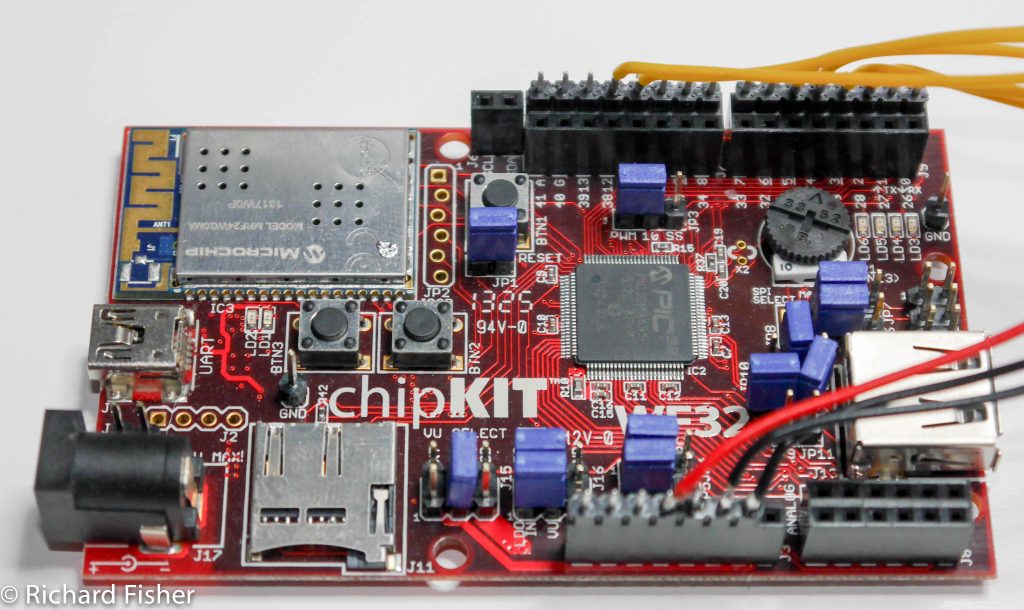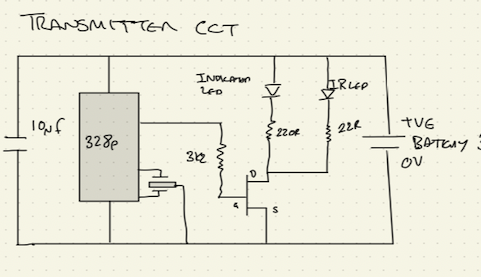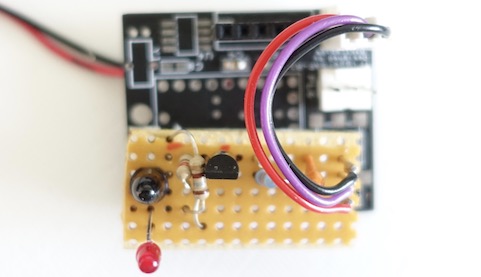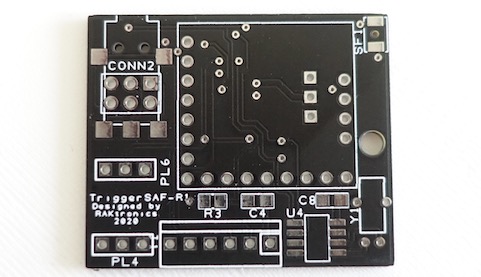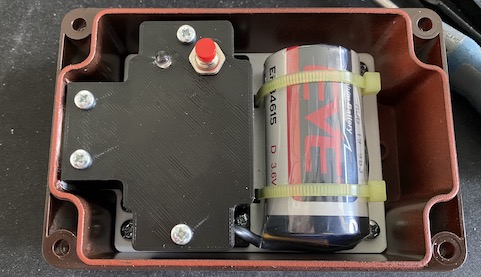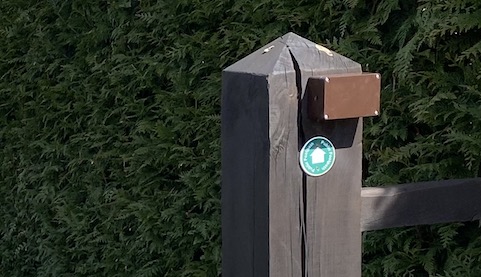The next phase has been completed, we are now collecting multiple temperature points from around the home, logging them to a MySQL server and have a basic web page to view the results.
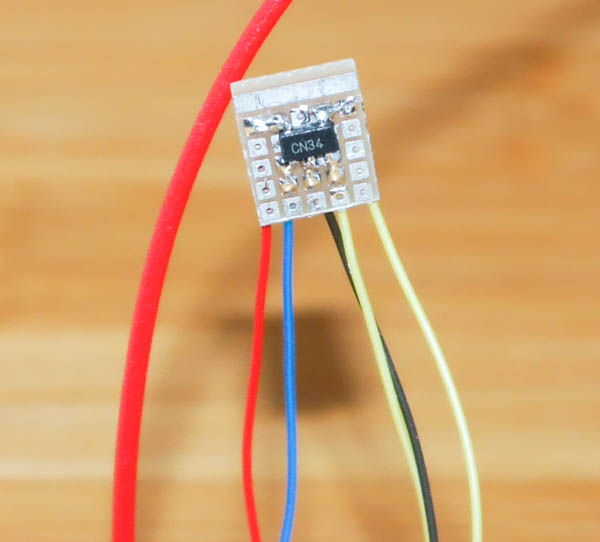
I have selected a digital sensor with an SPI interface. The microchip TC77 fits all the requirements with the exception of the lowest operating voltage, at 2.7 volts the sensor will stop working before the MCU and wireless module. The advantage of the digital sensor is twofold 1) it avoids any sensor calibrating issues 2) it copes better with battery voltage variations. I had originally decided to use a TMP102 I2C sensor and originally made the prototype using it. It had the advantage of lower voltage operation and the possibility to have four devices on the same two wire interface. The disadvantage it that the package was not vero-board friendly and I could not use these in bulk without a PCB, maybe I will use these on the final version.
Each module now has small temperature sensor PCB on legs together with a battery. I have gone with the small battery as I can still get many months if not years out of a single CR2032 cell, the microchip battery life calculator estimates approximately 11 years, time will tell!
As the SPI interface is already in use for the wireless module and because the sensor uses a common data in/out pin I made the decision to create a bit-bang SPI interface for the sensor. This works very well and does not seem to impact on performance or battery life. The unit has a whole spends most of it time in sleep mode, only waking to read the sensor and transmit the data. During the low power mode the total power drain is around 2-3uA, less than I can measure properly without special kit. The sensor range is -40 to +125C with a resolution of 0.0625C and a worst case accuracy of +/- 1C over the average use range.
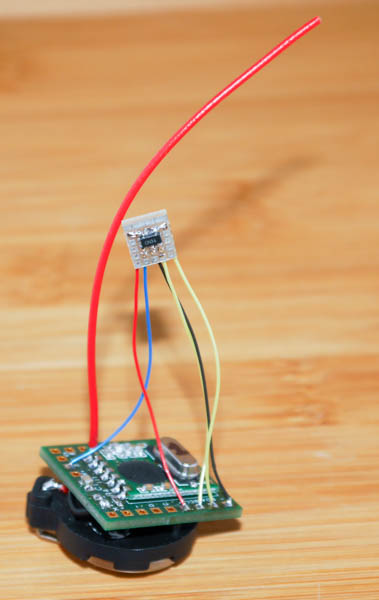
The data receiver is still the rough vero-board plugged into an old MacMini running a Xojo application to push the data to the cloud.
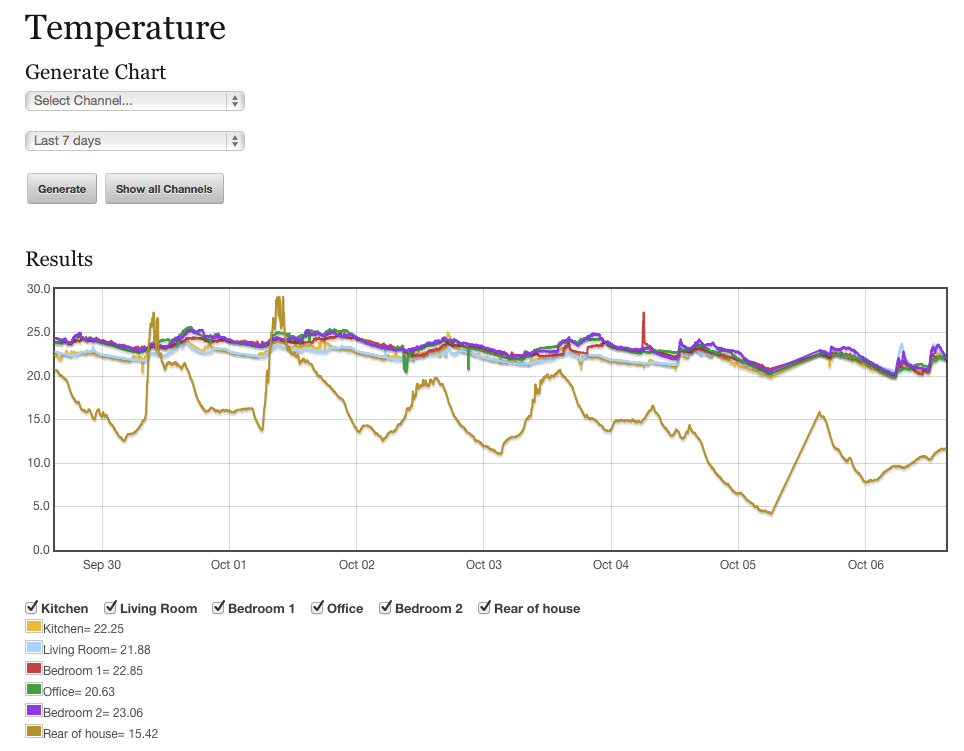
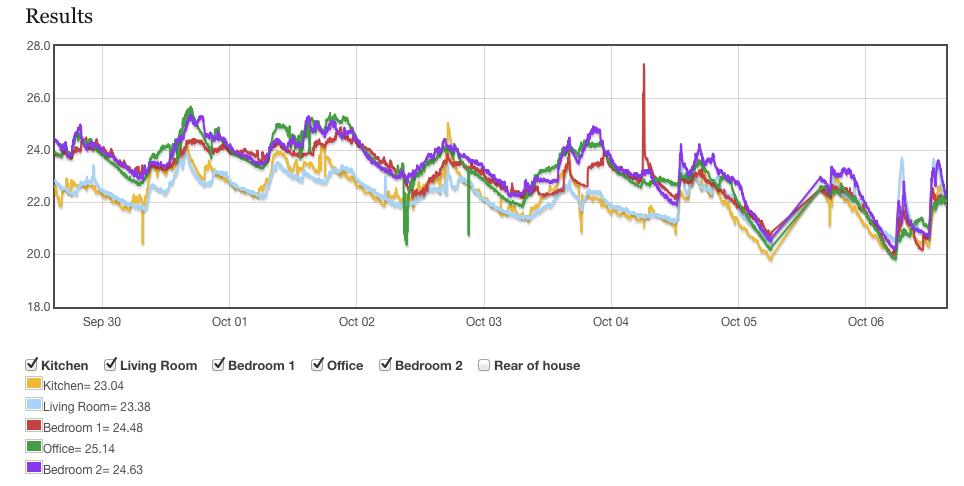
You can see that their was a break in the data on the 5th/6th of October, this was due to the MacMini falling off the WiFi.
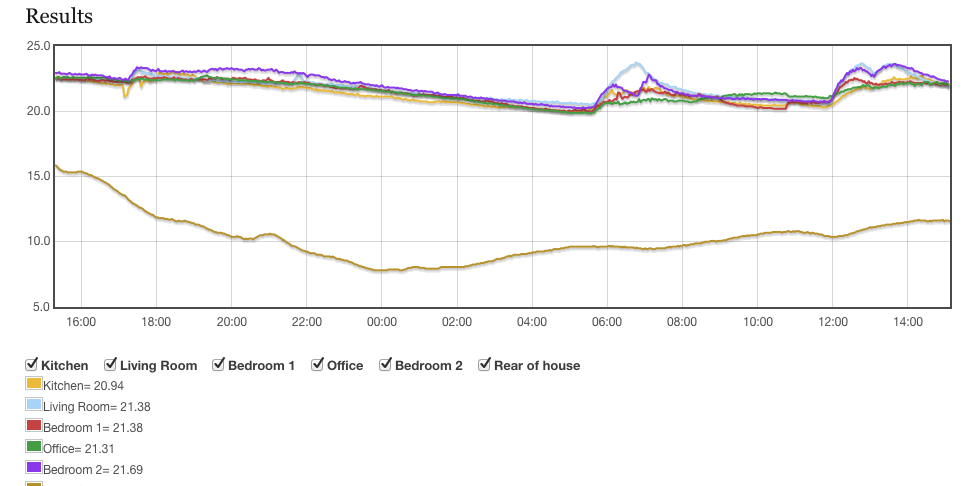
Data has been collecting for a number of weeks now and the results are quite interesting. It is surprising how slowly the heat leaks away from the home, only a couple of degrees C over six hours, I guess the insulation works!
The next step is to replace the MacMini with a proper data collection system. At present this will probably be a MicroChip chipKIT WF32. This is an Arduino type board based around a 32bit MicroChip device and contains USB, WiFi, SDCard along side an enhanced set of I/O connections. the advantage of the Arduino system is that as well as the rapid development possibilities, all the hard work for the WiFi interface is handled by standard libraries. Once the complete system is developed I may port it over to the Microchip libraries, one for another day I think!
